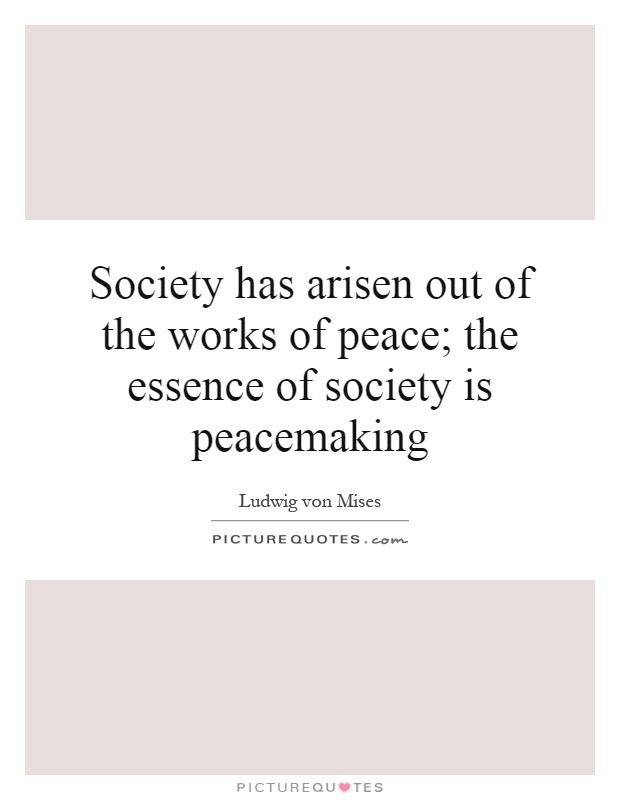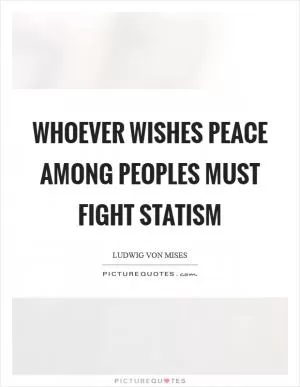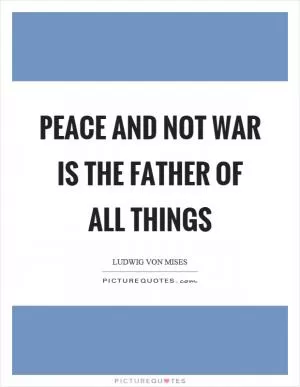Society has arisen out of the works of peace; the essence of society is peacemaking

Society has arisen out of the works of peace; the essence of society is peacemaking
Ludwig von Mises, a prominent Austrian economist and social philosopher, believed that society has arisen out of the works of peace and that the essence of society is peacemaking. Mises argued that peace is the foundation of civilization and that without it, society would descend into chaos and conflict. He believed that peace is essential for the functioning of a free market economy and the prosperity of a society as a whole.Mises believed that the division of labor and the cooperation among individuals in society are only possible in a peaceful environment. In his book "Human Action," Mises argued that peace is necessary for economic progress and the advancement of civilization. He believed that war and conflict disrupt the division of labor and hinder economic growth, leading to poverty and suffering.
Mises also believed that peacemaking is essential for the preservation of individual rights and freedoms. He argued that a society based on coercion and violence cannot protect the rights of its citizens and that only a peaceful society can guarantee the freedom and prosperity of its members. Mises believed that the rule of law and respect for property rights are essential for maintaining peace and order in society.
Mises' ideas on peacemaking and the importance of peace in society have had a significant impact on modern libertarian and classical liberal thought. Many libertarians and classical liberals have embraced Mises' ideas on peace and have argued for a non-interventionist foreign policy and the promotion of free trade as a means of promoting peace and prosperity.












 Friendship Quotes
Friendship Quotes Love Quotes
Love Quotes Life Quotes
Life Quotes Funny Quotes
Funny Quotes Motivational Quotes
Motivational Quotes Inspirational Quotes
Inspirational Quotes